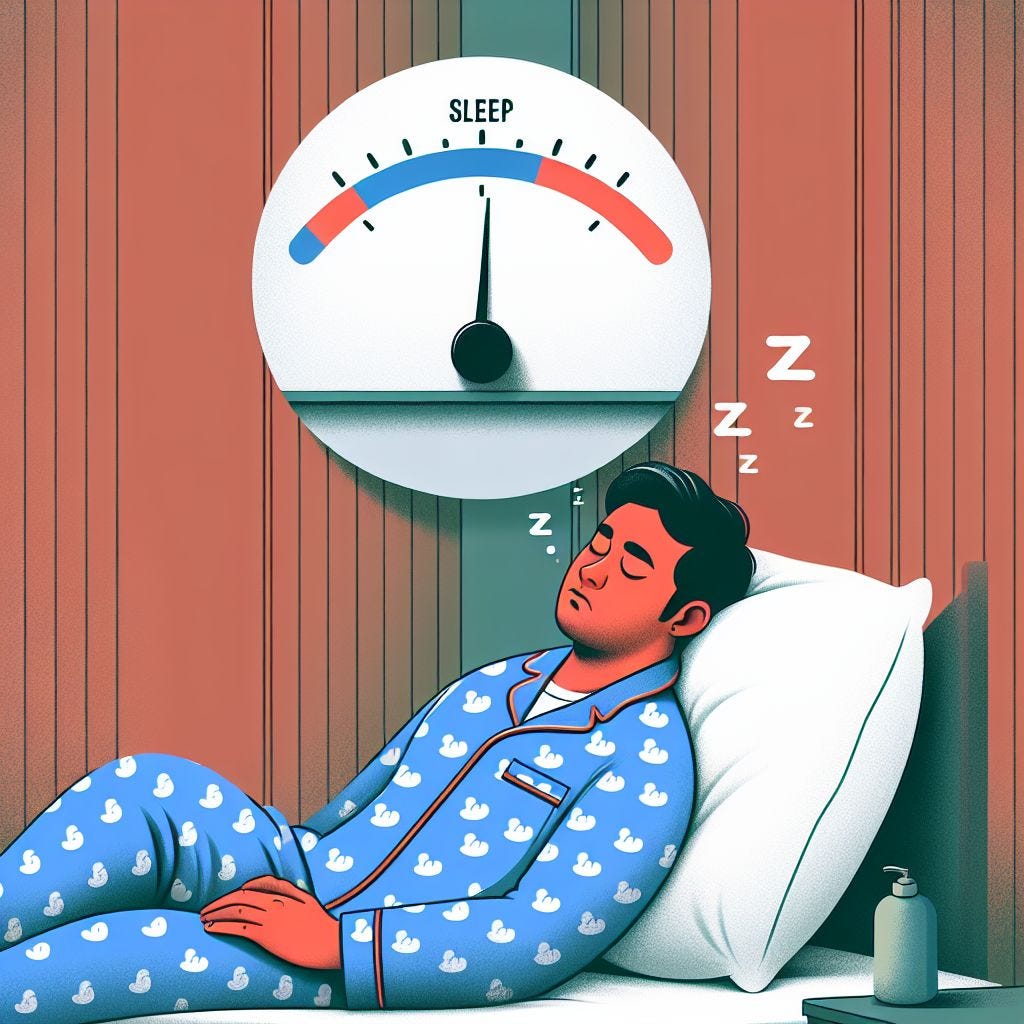Reclaim Your Attention Spans
Technology and unrealistic productivity goals have ruined us neurologically. Luckily, there are ways to fight back.
Goldfish famously have attention spans of nine seconds, or so the popular saying goes. We view them as simple, inelegant, stupid creatures that we imprison in bowls of water (or plastic bags at the carnival) merely for our - the superior apex species that is the human - entertainment. “Look at them mosey around their little home, doing nothing of import and instantly forgetting what they were doing,” we say as we quickly become bored, sit down on the couch, turn on the TV (big screen) to watch TikToks on our phone (small screen) because we’re tired from working on our computers (medium screen) all day.
Whether or not the goldfish stat is a myth (and it seems to be so), the reality of the shrinking human attention span is all too real. There are many reasons why, and debate rages on as to what the largest culprit is, but the fact of the matter is we simply don’t (can’t?) pay attention like we used to, leading to a concentration crisis. The person who can figure out how to remain engaged longer than an Instagram reel is going to do very well for themselves in this new world we find ourselves in.
You Suck at Multi-Tasking, So Stop Trying
My grandfather once owned a car that was fast off the block, but only if you turned all of the other peripheral functions of a modern automobile off. If he wanted to beat someone at a green light, he would turn off the radio and the A/C or heat (depending on the season, which was a real sacrifice in January in South Bend) and gun it, hoping for the best.
While Papa never meant this to be a lesson in multitasking (he was more interested in the “punks” he had to show up), what he did was essentially make his car focus on a single task to completion. He prevented his car from multitasking, and we should be doing the same to our cerebral engines if we want to be quick when we mash the accelerator.
When you change up work in a multi-tasking situation, there’s a severe “switching cost” that effectively eats into your productivity. This debit on the cognitive balance sheet only increases with the complexity of the task, which means it is only growing in a world where ambiguity within job descriptions and the complexity of problems needing solutions at work only increases.
The opposite of multi-tasking is monotasking, and it’s something for which humans have been striving for millennia. Trying it out will not be a cakewalk, but it could very well pay dividends on how you approach your work. The main enemy of monotasking are the deadlines we’ve created that can only be accomplished by multitasking. This does beg the question, however, of the kind of work product we’re delivering at those deadlines.
So next time you switch tasks at work in an effort to be more productive and accomplish more, think of a bald 50 year-old in an Olds 88 getting smoked by some kid in a ‘Vette (I would have used a faster European car, but they didn’t buy foreign in that town.)
Start Sleeping More
Anyone who has had children knows the severe lack of cognitive function that occurs with sleep deprivation. First-time parents are beyond useless when it comes to anything requiring thinking (which is why it’s such a shock to me that companies want people back within 3 months of having a kid - their plus/minus is going to rival Jordan Poole’s until that kid is putting in decent hours in the crib.)
But that’s an extreme example - the regular sleep debt that we’re all carrying around is like a yolk around our neck as we try to focus on work and deliver on our goals. We’re sleeping less than we used to and simply making it up on the weekends to “catch up on sleep” actually has no scientific basis. The only way to erase sleep debt is to consistently sleep more.
“But Matt,” you say, “I’m one of those special snowflakes who don’t need sleep.” These people do exist, but it’s estimated to be 1%-3% of the total population. Humans are also notoriously bad at judging their performance when they are sleep-deprived. So ask yourself - are you in the extremely rare 1%-3% of the population that can operate on little sleep, or are you part of the 97%-99% who are just bad at knowing when their cognitive function is getting decimated by sleep debt?
Read More Books
While you may not need to be as militant as John Waters about it, we should all be reading more books. And not just to expand our minds and learn a thing or two, but to regain the linear focus within our neurological makeup that is under constant attack in today’s tech-driven world.
All of those pings and dings and buzzes and notification bars seem normal, but in reality they are killing our productivity and rewiring our brains to be on constant alert for them. While our brains have sadly been wired for this, it is possible (with a little work) to rewire them.
And one of the best ways to do that is to re-teach your brain how to tackle complex problems by reading physical books. It helps to rebuild the neurological defenses constantly under assault by the technology meant to increase our productivity (on top of driving increased empathy for the reader.) Alas, while this newsletter may help to drive adoption of the kind of monotasking and reading that can help us reclaim a little bit of our attention spans, it’s best to skip the e-reader and stick to paper.
Grab Bag Sections
WTF SFO: I found myself yet again flying the JFK-SFO route recently. And I also found myself disappointed by all-too-preventable things. First off, when you book SFO over the next year as a destination, you should get a pop up that your flight will likely be delayed given the construction going on at the Bay Area airport. The pilot announced that on our flight after a 2.5 hour delay as we taxied to takeoff as if it’s common knowledge. If you read this newsletter, now it is. For the majority of flyers of this route, however, it is not. Airlines should give a friendly heads up on that.
Finally, last time I flew this route, the WiFi was broken on the way out. This time the free WiFi was fast and available. Awesome. The flight on the way home? That free WiFi actually cost $40 and was hot garbage. The key to solid branding is consistency - playing WiFi lottery on a 6 hour flight makes that difficult.
Album of the Week: Instead of diving into an album, we’re going to dissect WWIII a bit. No, not that WWIII - the one currently engulfing the rap game.
Let’s take a step back to 2013 when Big Sean was about to release Hall of Fame. There was a promotional single that went out called “Control” which featured Jay Electronica and Kendrick Lamar in which KDot came out swinging at the rap royalty of the time, including J. Cole and Drake. The song was great, but thanks to clearance issues never made it onto the album.
Fast forward to this year and Kendrick drew up the offense from the same playbook, taking shots at J. Cole and Drake after they released a single from Drake’s album called “First Person Shooter.” Drake has been subliminally beefing with a lot of rappers and Kendrick basically just opened the floodgates. J. Cole’s initial diss on his Might Delete Later surprise album drop was later, well, deleted and Cole apologized for even releasing it. This newsletter declares that to be super wack.
Since Kendrick’s verse came out Metro Boomin, The Weeknd, Ja Morant (?), and Rick Ross have all come out against the 6 god. Rick Ross’s beef with Drake might be the most bizarre, as it seems to circle around Ross’s accusations of Drake having had a rhinoplasty. This newsletter declares that to be super weird.
For millennials like myself who grew up seeing rappers get killed over the kind of beef stewing in rap today, this all feels extremely silly. There has to be a middle ground between drive-by shootings and middle school girl cries of “nose job!” for rap beef. It seems like we’re still trying to find it.
Quote of the Week: “I find television very educating. Every time somebody turns on the set, I go into the other room and read a book.” - Groucho Marx
See you next week!








